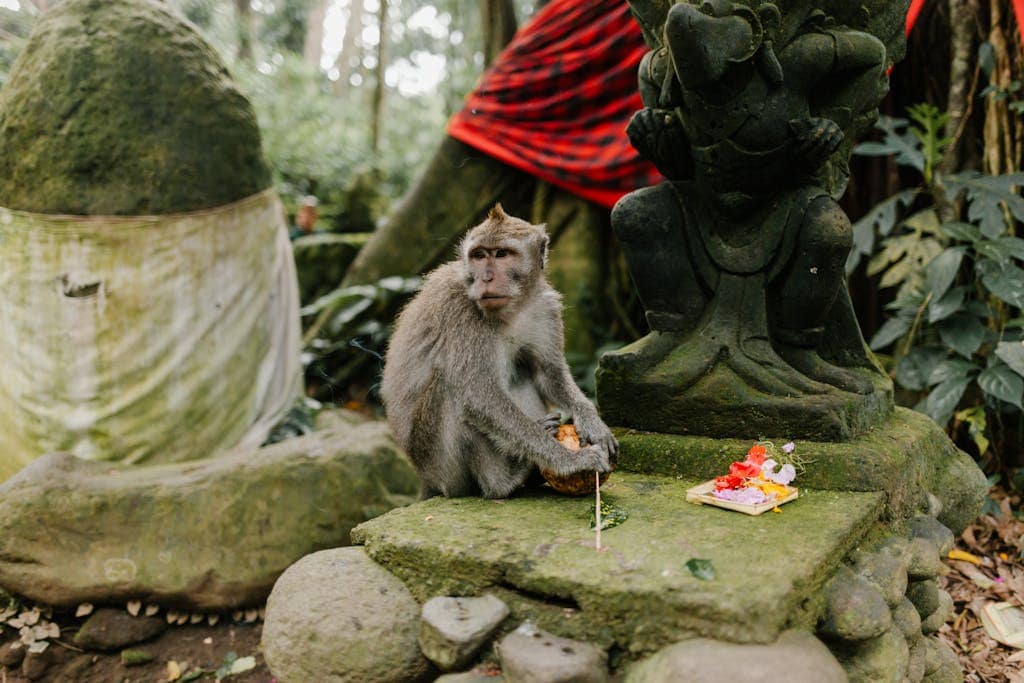Is Bali Safe: A Personal Account of My Experience
Jet Setting with Jen contains affiliate links and is a member of the Amazon LLC Associates Program. If you make a purchase using one of these Amazon links, we may receive compensation at no extra cost to you. Read our Privacy Policy for more information.
If Bali is on your bucket list, I totally get it. The island’s lush jungles, breathtaking beaches, and incredible culture make it a dream destination. But if you’ve been researching your trip, you’ve probably asked the same question I did before my first visit—is Bali safe?
I’ll be honest, I had my concerns. I read about pickpockets, food poisoning, and even earthquakes before I arrived. After experiencing Bali, I can say it’s generally safe if you’re prepared and cautious. This post covers scams, health tips, and road safety to help you plan your trip.
Introduction: Is Bali Safe
Is Bali safe? Bali, often called the “Island of the Gods,” is a paradise that attracts millions of tourists each year with its stunning beaches, vibrant culture, and lush landscapes. However, when planning a trip, safety is a crucial consideration. This comprehensive guide addresses the question: Is Bali safe? We’ll delve into general safety concerns, tips for staying secure, and specifically explore the question, “Is Bali safe for solo female travelers?” to ensure all visitors can enjoy their trip with peace of mind.
Crime in Bali
Bali is one of the safest destinations in Southeast Asia, but like anywhere in the world, crime exists. Petty theft is the biggest issue, especially in tourist-heavy areas like Kuta, Seminyak, and Ubud. Pickpockets often target crowded markets and busy nightlife districts, while thieves on motorbikes frequently snatch bags from unsuspecting pedestrians. I met a fellow traveler who had their phone grabbed right out of their hand while walking along the street. After that, I quickly learned to stay alert and keep valuables secured.
Scams are another thing to watch for. Some taxi drivers refuse to use meters and overcharge tourists, while certain money exchange booths advertise great rates but use sleight of hand to shortchange you. Always count your money carefully and stick to reputable exchange places. Despite these minor annoyances, I never felt truly unsafe in Bali, even when exploring solo.
One of the best ways to stay safe is to avoid carrying large amounts of cash, use crossbody bags with zippers, and keep an eye on your belongings in crowded areas. Most locals are incredibly friendly, and if you use common sense, you’ll likely have no issues at all.
Health Risks in Bali: What You Need to Know
One of the biggest concerns for travelers is staying healthy in Bali. “Bali Belly,” or traveler’s diarrhea, is infamous, and nearly every visitor experiences it at some point. Contaminated food or water is the main cause, so always drink bottled or filtered water and skip ice cubes unless you’re sure they’re safe. I stuck to these rules and thankfully avoided getting sick, but I did carry activated charcoal tablets just in case.
Another health risk is dengue fever, a mosquito-borne illness that’s especially common during the rainy season from November to April. I met someone who caught dengue, and they described it as feeling like the worst flu imaginable, with a high fever, body aches, and exhaustion. To minimize the risk, wear mosquito repellent with DEET, stay in accommodations with air conditioning, and cover up with long sleeves and pants in the evenings.
Beyond that, medical care in Bali is decent, but for anything serious, you may need to be evacuated to Singapore or Australia. Having good travel insurance is a must.
Natural Disasters in Bali: Earthquakes, Volcanoes, and Tsunamis
Bali sits on the Ring of Fire, so earthquakes, volcanic activity, and tsunamis are part of life here. Small tremors happen regularly, but major earthquakes are rare. When I was in Bali, I was there for 10 days and didn’t feel any earthquakes. But they tend to happen and you don’t even feel most of them. The island’s most well-known volcano, Mount Agung, last erupted in 2017, which disrupted flights but didn’t pose a major threat to most of Bali.
Tsunamis are another possibility, though they are extremely rare. Coastal areas like Canggu, Seminyak, and Kuta have evacuation plans in place, so it’s always a good idea to ask about them if you’re staying near the beach. The best way to stay informed about natural disasters is to follow local news and alerts. Most accommodations are well-prepared for emergencies, and I never felt like I was in any real danger while visiting.
Wildlife in Bali: Monkeys and Street Dogs
ne of the unexpected challenges of visiting Bali is dealing with monkeys. At places like Ubud’s Monkey Forest and Uluwatu Temple, the monkeys may seem cute, but they can be aggressive. I saw one grab a tourist’s sunglasses right off their head, and another steal a bag of food from someone’s backpack. These monkeys are smart and will take anything that looks interesting, so it’s best to keep your belongings secure and avoid eye contact with them.
Another concern is the stray dogs wandering around Bali. While most are harmless, some carry rabies, so it’s best to avoid petting them. If you get bitten or scratched by a monkey or dog, seek medical attention immediately, as rabies is a serious risk in Bali.

Bali Transportation: Scooters, Taxis, and Ride-Sharing
Getting around Bali can be chaotic. The traffic is intense, roads are often poorly maintained, and drivers don’t always follow traffic rules. Renting a scooter is one of the most popular ways to explore, but it can also be dangerous if you’re inexperienced. I saw multiple tourists with bandages and road rash from scooter accidents. If you’re going to ride, always wear a helmet, drive cautiously, and make sure your travel insurance covers scooter accidents—many policies don’t.
If you’re not comfortable driving, taxis and ride-sharing apps like Grab and Gojek are great alternatives. I used Grab for most of my trip, and it was cheap, reliable, and much safer than renting a scooter. Private drivers are also available for full-day rentals at reasonable prices, which is a great option for sightseeing.
Bali Culture: Avoiding Trouble
Bali is a deeply spiritual place, and respecting local customs is important. When visiting temples, you’ll need to cover your shoulders and knees, which I learned the hard way after being turned away at a temple in Ubud. Offerings are placed on the ground outside shops and homes, and it’s considered disrespectful to step on them, so watch where you walk.
Public displays of affection are frowned upon, especially in rural areas, and never touch someone’s head, as it’s considered sacred in Balinese culture. Taking selfies inside temples is also something to be mindful of—some places allow it, while others don’t. It’s always best to ask first.
Conclusion: Is Bali Safe
After spending time in Bali, I can confidently say that yes, Bali is safe for travelers. While there are some risks, most of them are easily avoidable with a little awareness and preparation. I never felt unsafe, even when exploring alone, and I found the locals to be incredibly kind and welcoming.
If you take basic precautions—like watching out for petty theft, being mindful of food and water safety, and using reliable transportation—you’ll have an amazing trip. Bali is a magical place, and as long as you travel smart, you’ll be able to fully enjoy everything this island has to offer.
So, if you’ve been asking yourself, “Is Bali safe?” I hope this guide has given you the confidence to pack your bags and experience it for yourself.
Have you been to Bali? Let me know about your experience in the comments!
Feature Bali Posts
